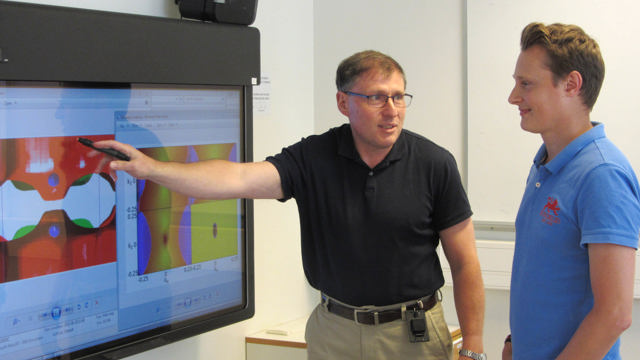Materials synthesis, characterisation and applications
The programme courses cover the following important areas of materials science:
- Synthesis, including physical and chemical methods to design and synthesize novel functional materials at the nanoscale.
- Characterisation, involving hands-on use of, for instance, electron microscopy, X-ray diffraction, molecular spectroscopy, and computer simulations to characterise materials.
- Applications, such as semiconductor and energy technology, biomedicine, and sensor technology.
Nanotechnology, physics and chemistry
Materials science and nanotechnology are interdisciplinary fields. You will therefore study courses in physics and chemistry as well as materials science to obtain a fundamental and comprehensive understanding of materials. The courses contain a mixture of lectures, experimental lab work, computer simulations, and project work. In the second year, you have the freedom to choose a path that suits you. You may take additional courses in line with your interest during the autumn semester and do your master’s project in the spring. Alternatively, you can dedicate the entire second year to a larger project.Access to major research facilities
The programme is conducted in close collaboration with prominent research groups in materials science, with extensive international and industrial connections. LiU is hosting the Swedish Research Infrastructure for Advanced Electron Microscopy (ARTEMI) and the National Supercomputer Centre (NSC). We also have access to synchrotron radiation facilities such as MAX IV and Petra III. For you, this means excellent opportunities to take part in cutting-edge projects and enjoy supervision by experts.
